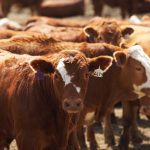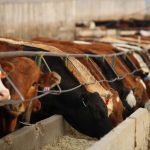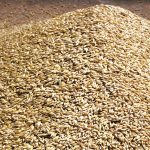Reading Time: 4 minutes Ottawa is putting $54-million into ‘living labs’ initiatives in six provinces, including $8.5 million in a project that will be led by Alberta Beef Producers. “Each living lab will focus on identifying innovative technologies and on-farm management practices that can be adopted by farmers nationwide to tackle climate change,” the government said in a release. […] Read more

Alberta Beef Producers get funding for ‘living labs’ project
Government says real-world testing of stewardship practices will benefit the environment and farmers

Feed weekly outlook: New-crop supply outlook ‘significantly better’ as prices drop
MarketsFarm — Prices for feed barley and wheat in Western Canada are still higher than this time last year, but if large declines in those prices are any indication, the 2022 harvest is set to be more typical than that of 2021. The high-delivered bid for Saskatchewan feed barley is $8 per bushel, $1 lower […] Read more

Good ratings seen for Manitoba’s spring wheat, canola
MarketsFarm — Crops in Manitoba remain in good shape, according to the latest weekly report from the province’s agriculture ministry. In particular, Manitoba Agriculture and Resource Development (MARD) found spring wheat across the province rated 85 per cent good to excellent — but with crops not doing as well in the province’s Interlake region. While […] Read more

They don’t wear lab coats but more farmers doing on-farm research
Getting scientifically valid data takes time and work -- and often at the busiest times of the year
Reading Time: 4 minutes With all the decisions that must be made in a growing season, on-farm research trials are a way for farmers to increase the odds of making the right call on major changes. “When you do something yourself on your own farm, you can be pretty certain it will work in your conditions,” said Lewis Baarda, […] Read more

Klassen: Tighter fundamentals support feeder complex
Compared to last week, western Canadian yearling prices were steady to $2 higher on average while calf markets were up $2-$4. There was an increase in activity over the past week, although many auction barns remain in holiday mode. Major feedlot operators in southern Alberta were extremely aggressive on yearlings fresh off grass and this […] Read more

Denmark’s Royal Unibrew to buy Toronto’s Amsterdam Brewery
Brewer seeks new capacity in North America
Corrected, July 18 — Copenhagen | Reuters –– Danish brewer and beverage maker Royal Unibrew will acquire Toronto craft brewer Amsterdam Brewery in a deal valued at around 250 million Danish crowns (C$44 million), Royal Unibrew said in a statement on Friday. “The acquisition we are doing today is very important for the future growth […] Read more

Feed weekly outlook: Grains under pressure awaiting new crop
Farmers 'digging in and being patient'
MarketsFarm — Feed grain bids in Western Canada continue to come under pressure, as feedlots chew through corn imports from the United States and wait on the new-crop harvest. “We’re certainly seeing things soften,” said grain trader Shaun Smith of Market Place Commodities in Lethbridge. Declines in the Chicago futures and good Prairie growing conditions […] Read more

Larger U.S. barley crop expected in 2022
MarketsFarm — Barley production in the U.S. is forecast to be up substantially in 2022, with early indications pointing to the largest crop in seven years. In its latest production estimates, the U.S. Department of Agriculture forecast the country’s 2022 barley crop at 3.8 million tonnes, which would be up from the 2.6 million tonnes […] Read more

Cereal groups merger heads to a vote
Reading Time: < 1 minute Alberta wheat and barley farmers will vote on a proposed merger of the two crop commissions this fall. “Farmers can expect plebiscite information to come to their mailbox this fall, although voting in the plebiscites will be conducted online,” an article in the most recent Grain Exchange newsletter states. Provincial rules require separate plebiscites for […] Read more

Klassen: Feeder cattle market adjusts for lower barley prices
Compared to last week, western Canadian yearling prices climbed $2-$4 on average. Calf markets were unchanged. For the second week in a row, the market was hard to define due to limited numbers on offer. Small packages under five head and single stragglers were common. Larger groups of green thin yearlings were well bid by […] Read more

